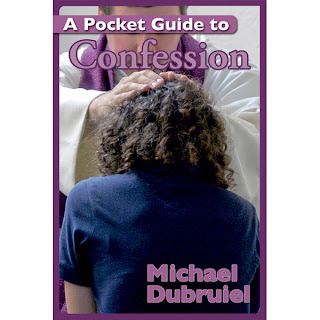(Michael Dubruiel - 2007)
I have a M.A. in Christian Spirituality and have read a ton of books on the spiritual life, but I would have to say that The Gift of Faith
I only came to know of this book a week ago, when I met the founders of In the Arms of Mary Foundation when I was attending the Catholic Marketing Network trade show in Birmingham, AL. Lisa Hendey has interviewed the organization for more about them.
Now, what I came to know about the organization is that they read The Gift of Faith
What will you find in Father Dajczer's book a revolutionary way of looking at your spiritual life. If you feel stuck, or like you are just aimlessly moving about in your relationship with God, you need this book!
Interestingly it was a meeting with St. Padre Pio that changed Fr. Dajczer's life and outlook and one of the interesting anecdotes in the book is about a scientist who presented Padre Pio with his opus vitae, his life's work--two volumes that he wrote over his lifetime and wanted Padre Pio to bless. Padre Pio's reaction to this is worth the price of the book alone.
It was providential that this book fell into my hands at this time when Father Benedict Groeschel and I are working on a Q and A book on the spiritual life that will come out this Fall--and also while I'm working on a "pocket guide" to Confession. Fr. Dajczer points out there are two ways to celebrate the Sacrament of Penance--in an egocentric way or a theocentric way. The egocentric way of course focuses on oneself--we go to confession in order to feel better about ourselves, its all about us (of course the antithesis of the spiritual life, where we are to die to ourselves in order to live for Christ), the "theocentric" way is to be focused on Christ--what have our sins done to Christ? Are we sorry that we have betrayed him, broken our relationship with Him? Is that the goal to once again mend the broken relationship with Christ and His Body the Church?
I confess that I recognize that my own celebration of the sacrament has been more "egocentric" than God centered and of course that is a huge problem if one is seeking spiritual growth--to come closer to God.
Fr. Dajczer points out that the egocentric model in the Scriptures is Judas--who expresses sorrow for his betrayal of Christ, returns the thirty pieces of silver to the Priests, then "repents onto himself"--not to God or Christ--this is suicidal--we can not save ourselves! Peter who also betrays Christ, denying him three times--comes to Christ and expresses his love for Christ, "Lord, you know that I love you."
Check this book out for a real life changing book!





